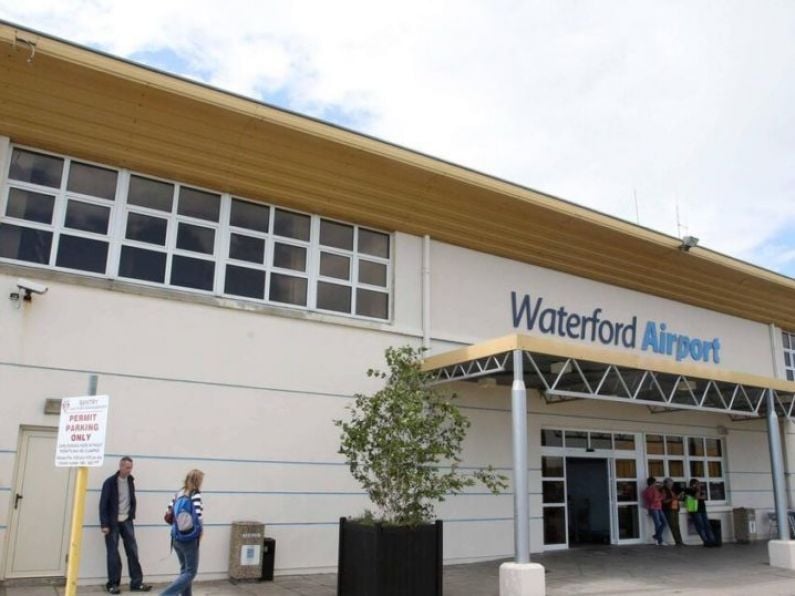James Cox
A public health professor has said the Government will have to make some swift, and difficult, decisions if Ireland is to mitigate the impact of the Delta variant of Covid-19 and avoid what has happened in the UK.
The Delta variant, first identified in India, is now dominant in the UK, and it has led to the planned 'freedom day' [lifting of all lockdown restrictions] in Britain being pushed back from June 21st to July 19th.
While Covid case numbers in the Republic remain stable, 188 cases of the more transmissible Delta variant have now been identified.
“It is quite likely that the Delta variant will overtake the Alpha variant in Ireland,” Professor Ivan Perry of University College Cork told BreakingNews.ie.
'Significant concern'
“It has to be a significant concern when you look at what’s happening in the UK, the fact that Boris Johnson decided to defer their reopening for a month.
“The UK is beginning to see an exponential rise, not just in cases but in hospital numbers and deaths as well, albeit in much smaller numbers than previously, but any rise is a concern.”
While the situation is improving in Ireland as the vaccine rollout gathers pace, Prof Perry said we only need to look across the Irish Sea for a reminder of why it would be foolish to become complacent.
“The hard lesson we have to take from it is there’s no magic bullet for this virus. Vaccines are fantastic, and we’re lucky to have them, but they’re one layer of protection, a very powerful layer of protection, but we also need strong and well resourced public health, we need to keep up contact tracing.
“The thing about infectious diseases, and Covid is an example, they are woven into the social fabric of society, so it’s never just a purely medical or health issue. It’s about poverty, social exclusion, poor housing, people on zero-hour contracts who can’t take time off work when they’re sick.
“It’s about dealing with those broader health determinants as well, particularly strengthening our local public health departments who have the local knowledge that can deal with pockets of infection and get in control of those situations.
“We’re still going to have some other layers of protection including things like good ventilation and people wearing masks in certain settings.”

The impact of the Delta variant has forced UK Prime Minister Boris Johnson to delay the lifting of all Covid restrictions in Britain.
Prof Perry said the Delta variant was of particular concern with the number of people in their 50s and 60s who have received one AstraZeneca dose, as it has been found to be 33 per cent effective against the variant for these people.
“That’s a real concern especially for people in their 50s and 60s with one vaccine dose and the whole tranche of younger people who haven’t had one dose yet.
“The risk of serious illness is greater in the older age group as we know, so that has to be a concern.”
Due to concerns regarding the Delta variant, UK arrivals who are not fully vaccinated must quarantine at home for at least 10 days, with a second day-10 PCR test being offered free of charge, in addition to the existing day-five test.
However, Prof Perry feels mandatory hotel quarantine should have been considered.
He feels home quarantine for UK arrivals is a risk.
Quarantine
“The quarantine is still voluntary, and it’s not going to be properly enforced, so we are taking a significant risk there.
“Obviously it’s something that nobody wants to think about, there are families separated by this, but when you’re dealing with a virus like this, given the end is in sight potentially if we continue with high levels of vaccine uptake in the autumn.
“Two doses are protective in terms of hospitalisation. With the end in sight we just need to be nimble and respond to what is happening in front of us.”
He expects the Delta variant to become dominant in Ireland sooner or later.
“I would say it’s highly likely, it would be borderline miraculous if it doesn’t become the dominant strain because the patterns of this virus operates on haven’t changed.
“You can see why the British government made the decision even though they were very keen on their day of freedom, I see that as a red flag for us particularly as our rate of vaccinations is a good bit lower than the UK.
“We have to proceed with caution if we want to protect our outdoor summer and have a reasonable change of things getting back to near normal in the autumn.”
Prof Perry also expressed concern over the planned return of indoor dining from July 5th.
Indoor dining
“Unfortunately I think we’ll have to think very carefully about the return of indoor dining. The R value of this variant could be as high as 1.4 in the UK and once you’re there it’s a 40 per cent increment every week.
“We know how quickly small numbers become large numbers. I think this is what prompted the British government to act.
“They were very slow to limit travel from India, and they’re certainly seeing the impact of that now. Hopefully we won’t be looking back and saying we were slow to limit travel from the UK.
“It’s associated with more severe illness and vaccines aren’t as effective against it. I think we would be reckless to return to indoor dining now given the variant and our overall vaccine coverage.
“It’s a very difficult balancing act. The uptake is high, but the threshold for herd immunity is also high particularly when you have a virus that can become more transmissible.”

The Delta variant could pose a risk to the return of indoor dining, a public health professor has warned.
While it may not be the message people want to hear, Prof Perry feels people will have to hold on a bit longer with less international travel than they may have hoped for this summer.
“We’re all fed up at this stage, but the end is in sight, we have to hold out for six weeks or whatever.
“Indoor dining and international travel may be something we won’t have this summer at the level we would like.
“The longer there are issues around patent wavers, the longer the pandemic will be prolonged.
“We’re still having a couple of hundred a cases a day, so there’s always the risk of further mutations, this is a further reason we have to control the pandemic globally because apart from the suffering and death in other countries there is always the risk of further mutations.”












